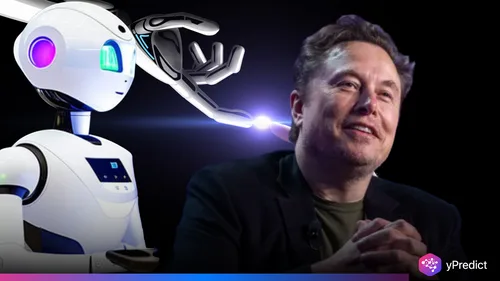
Elon Musk has been a frequent topic of discussion regarding technology and its implications for humanity. Recently, he passionately shared his vision of what artificial intelligence will do to the global economy. Rather than predicting universal unemployment or economic collapse, Musk looked forward to a future of opportunity and prosperity. He argued that the most likely outcome of advanced AI is one of abundance, where goods and services are available to anyone. In this future, people would not simply rely on government assistance or a universal basic income. Instead, society could reach a level of universal high income, where prosperity is widespread and wealth creation is powered by machines.
This perspective is both exciting and controversial. It challenges traditional ideas about the role of human labor, the economy, and personal purpose. Musk’s words invite us to consider how humanity should prepare for a world where AI may do almost everything better than people.
What does Elon Musk mean by universal high income?
The idea of universal high income differs from universal basic income. Instead of providing citizens with a fixed allowance, it envisions an economy where AI systems create so much abundance that wealth naturally flows to everyone. Goods and services could become incredibly cheap or nearly free because machines would handle production at scale.
In such a system, access to food, healthcare, housing, and technology would not be limited to the wealthy. Instead, prosperity could become a shared outcome of AI-driven productivity. Musk believes that if machines can handle work better than humans, society will need new ways to measure value, purpose, and success.
AI future and the end of traditional jobs
If AI can do everything you can do but better, what happens to human work? Musk raises this question not to spark fear but to highlight the need for adaptation. Traditional jobs may become less relevant in an AI future. Instead of labor being the central driver of income, wealth could come from ownership of AI systems, intellectual property, or creative pursuits.
For many, this may sound alarming. Yet Musk suggests that when machines take over routine and complex work, humans could finally focus on activities driven by curiosity, creativity, and meaning. Work as we know it may no longer define identity. Instead, individuals could live in an abundance economy where survival and income are no longer constant concerns.
The abundance economy: prosperity powered by AI
The abundance economy is predicated on the premise of artificial intelligence providing a means for the reduction of scarcity. As a result of AI, manufacturing could be more rapid, healthcare cheaper, and education ubiquitous. Envision customized tutors nurturing every child, immediate diagnosis in medicine, and food with little human involvement.
Such advancements could bring inequality challenges but also opportunities for more equitable access. If managed well, this abundance could mean societies where wealth does not concentrate in the hands of a few but spreads across entire populations. This is the promise behind Musk’s belief in a universal high income future.
Challenges and ethical questions
Despite its promise, the path toward universal high income is not without obstacles. Who will own the AI systems that produce wealth? How will governments regulate industries when human work is less essential? And perhaps most importantly, what role will humans choose for themselves when machines outperform them in nearly every task?
These are difficult questions to consider. The same technologies with the potential to generate plenty could, without proper guardrails, increase inequality. Policymakers, businesses, and communities must proactively create this AI future to ensure benefits accrue to all.
Why Musk’s prediction matters today
Musk’s forecast demands we consider concerns for more than short-term ramifications for the loss of jobs. It challenges societies to ready themselves for alterations that may reshape work, income, and possibly identity. If his vision comes to fruition, the future may not be about subsisting through wages, but flourishing in a paradigm where wealth is created by machines for everyone.
Preparing for this future will also mean innovating education, governance, and ethics. It will also mean a new type of mindset is required. Instead of fearing AI, humanity must seize AI and its expansion in abundance, while holding our institutions accountable for fairness of shared wealth.
Final Thoughts
The concept of universal high income espoused by Elon Musk may seem radical, but it reflects a deep truth: artificial intelligence could change everything about how we live and work. Instead of scarcity of resources, Musk imagines abundance. Instead of toil, he imagines a society that shares prosperity.
There will be bumps in the road. But if we as a society can cope with the transition wisely, Musk’s vision could represent the largest economic transformation in human history.






